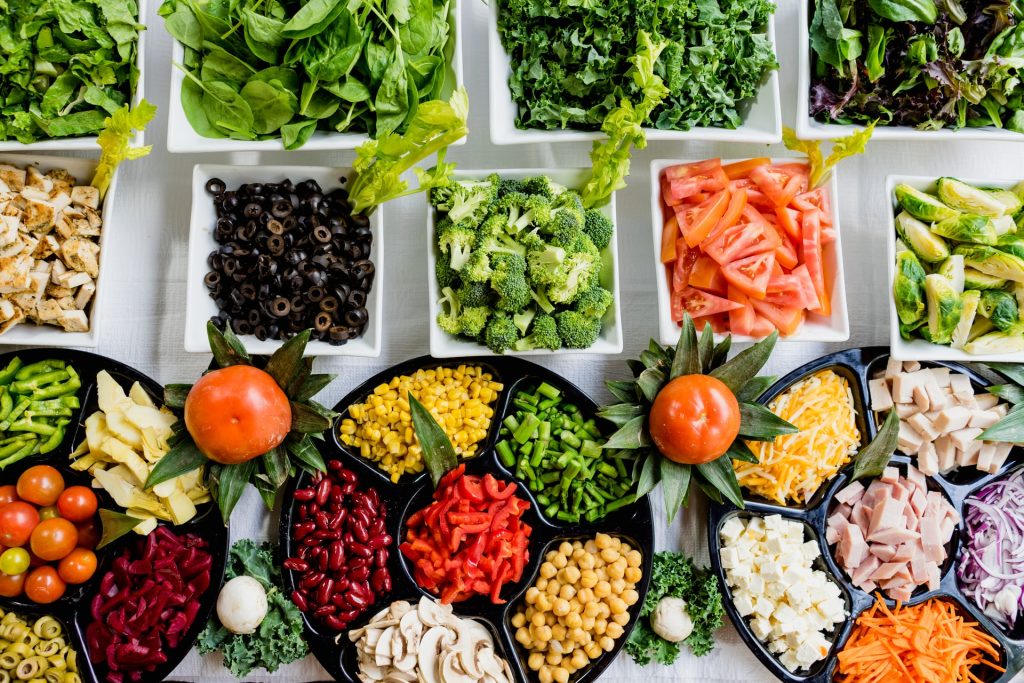In a culture that struggles with obesity, it’s easy for people to become hyper-focused on “how to lose weight.” For some people, however, losing weight is not a good thing. Unexplained weight loss is often an indicator of an underlying medical condition. If you’ve lost more than 5% of your weight between 6 to 12 months, your physical and psychological health may be in jeopardy. So attending to the underlying cause of the weight loss, whether it’s a physical issue or a psychological issue, is your first step. The next step is to find out how heal your gut.
[If you’ve been experiencing weight gain, on the other hand, see our previous post about the links between weight gain and gut health.]
Your Gut Health Affects Your Whole Health
The bacteria found in your digestive system influence your overall health and can wreak havoc if they get out of whack. Good gut health isn’t about getting rid of the bacteria that live in your gut. It’s about finding a good balance between the beneficial bacteria and the bad bacteria so that your gut microbiome can effectively support your health.
Bacteria and other microbes vastly outnumber the human cells in your body, and your body can’t function properly without them. They support your immune system, help you process and absorb nutrients, and lower the risk of many conditions, including:
- obesity
- heart disease
- diabetes
- cancer
- mental health and mood conditions
Other chronic and autoimmune diseases have also been linked to an imbalanced microbiome.
How to Heal Your Gut and Improve Gut Health
The most effective way to improve your gut health is to control what goes into your body. Here are five natural ways that you can get started on improving your gut health:
1 Consuming prebiotics, probiotics, and fermented foods can increase the beneficial bacteria in your gut. Prebiotic foods provide food for beneficial bacteria. Probiotic foods like plain yogurt, and fermented foods such as kimchi, tempeh, sauerkraut, and kombucha are packed with beneficial bacteria.
2 Add a variety of fiber-rich fruits and vegetables like avocado, collard greens, broccoli, and leafy greens to your diet. Fiber-rich foods fill you up and provide nutrition for beneficial gut bacteria.
3 Eat whole foods. Whole foods have gone through minimal to no processing, which means that they haven’t experienced the loss of nutritional benefits that processed foods have.
4 Bad bacteria love sugar, so avoid eating it. Avoiding foods with added sugar removes a primary food source for detrimental gut bacteria.
5 Take supplements if you need additional support. Consuming prebiotic and probiotic supplements can make up for any gaps in your diet and keep your gut good and healthy.
You might also look into the ideas behind food combining.
Worst Foods For Gut Health
Everything that you put in your mouth eventually ends up in your gut. That’s why, if you want to know how to heal your gut and stay gut happy, it’s crucial you avoid certain foods. The following food groups contain the worst foods for gut health.
Fried foods
If you’re already even a little health conscious then you know that fried foods are always on the worst foods list. The reason for this is that the types of oils commonly used for deep frying are canola oil, corn oil, and soybean oil. The high heat used in deep-frying combined with these oils causes a chemical reaction to occur. The result can inhibit the growth of healthy bacteria in the gut.
Processed foods
Heavily processed foods do not provide the ideal condition for the growth of healthy bacteria. Fast food, frozen foods, white bread, and most canned vegetables contain additives and preservatives. They’re also low in fiber, which is an important food source for healthy gut bacteria. Most processed foods also contain some amount of added sugar, which allows harmful bacteria to flourish.
Alcoholic beverages
Drinking alcohol can change the dynamics of the gut microbiome and contribute to an imbalanced gut. This imbalance can increase gut permeability and lead to potential health challenges.
Dairy
On the one hand, when fermented, dairy products like yogurt and kefir can support gut health. On the other hand, many studies have shown that unfermented dairy can alter the gut flora in unhealthy ways, causing negative bacterial strains to grow and crowd beneficial bacteria out.
Fructose
Even though fructose naturally occurs in fruits, it can cause issues with gut microbiota. Animal studies have shown that fructose can increase gut permeability and allow toxins to leave the digestive tract and enter the bloodstream.
Artificial sweeteners
Artificial sweeteners like saccharin, sucralose, and the compound family of polyols have been shown to act on the bacterial colonies in the gut. Sometimes this interaction can lead to an increase in harmful bacteria and an eventual decrease in beneficial gut bacteria colonies.
Increased Intestinal Permeability or “Leaky Gut”
Did you know your gastrointestinal tract includes over 4,000 square feet of intestinal epithelial lining? This lining controls what stays in your gut and what gets into your bloodstream. An unhealthy lining may have holes or cracks that allow bacteria, toxins, antigens, and partially digested food to penetrate the tissues beneath it. If that happens, inflammation and changes in the gut flora may occur. This can lead to problems within your digestive tract and span out into other systems.
The solution for a leaky gut is therefore the same as how to naturally improve your gut health. Watch what you consume!
So – How Do You Heal Your Gut?
Remember, the makeup of your microbiome can change quickly based on what you eat, but there’s no overnight quick-fix for an unhealthy gut.
However, just as every step in a marathon gets you closer to the finish line, every small change that you make to your diet gets you closer to a healthy gut microbiome.
If you’ve recently experienced unexplained weight loss or need guidance for how to heal your gut naturally, we’re here for you. Give us a call on 1-800-762-6282.
Why call us? Over the past decade, technology has given us the ability to accurately assess each individual’s microbiome. We can use advanced DNA testing to assess:
- Levels of healthy bacteria
- Pathogenic bacteria
- Parasites
- Yeast
- Viruses
And advanced metabolic testing for:
- Inflammation
- Immune function
- Digestion and absorption
Being able to accurately assess the gastrointestinal microbiome and metabolic imbalances allows us to create a personalized treatment plan to improve your gut health as well as find solutions to a myriad of chronic illnesses. Contact us for a consultation!



